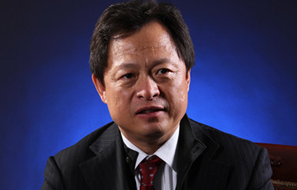'Unwanted treatment' to be reduced
The mental health law that took effect on Wednesday will help protect the rights of mentally ill people and, in some cases, prevent them from being forcibly hospitalized, experts said.
Experts also called for an improvement in the awareness of mental health issues to ensure that patients get timely treatment.
The new law stipulates that mental health checks and medical treatment should be conducted on a voluntary basis, except to people diagnosed with severe mental illnesses or who are considered a danger to themselves or others.
The move will likely curb abuses in compulsory mental health treatment, experts said.
"A significant part of the law is to fully recognize the rights of patients. In most cases, they have the right to receive or refuse mental health treatment," said Xu Yifeng, president of the Shanghai Mental Health Center, one of the largest medical bodies in China specializing in mental health.
About 80 percent of the patients in the center were admitted involuntarily. They were sent to the center by their families or by the police.
"This situation will change after the law took effect," Xu said.
The new law attracted wide public attention when a draft was submitted for discussion in 2011.
In recent years, an increasing number of incidents were reported where healthy people were forced into mental hospitals. Some were sent by family members over family disputes, some by employers over wage disputes, or by local police to stop their protests against officials.
The law has clarified who, and under what conditions, will be able to send potentially mentally ill people for diagnosis and how to settle a dispute. When patients and their relatives disagree with a diagnosis, they can request a second one in a qualified medical institution, according to the law.
But the law may also have some side effects.
Xie Bin, vice-president of the Shanghai Mental Health Center, who helped draft the law, said that the number of patients in hospitals will decrease due to the law's principle of voluntary treatment.
"Patients will be less likely to seek treatment due to a lack of mental health knowledge," Xie said.
China has about 16 million people with serious mental health problems, but less than half have been treated.
Xu also said it might be difficult to identify whether a person is potentially harmful to himself or others. "This may delay treatment for some patients," Xu said.
Xie called for joint efforts from all the professionals in the sector and better education.
- China answers call for relics 'safe havens'
- PLA stages live-fire drill near China-Myanmar border
- Global competition for young entrepreneurs launches
- Zhejiang to introduce China's first provincial law to empower river chiefs
- Chinese leaders attend funeral of former senior political advisor

























